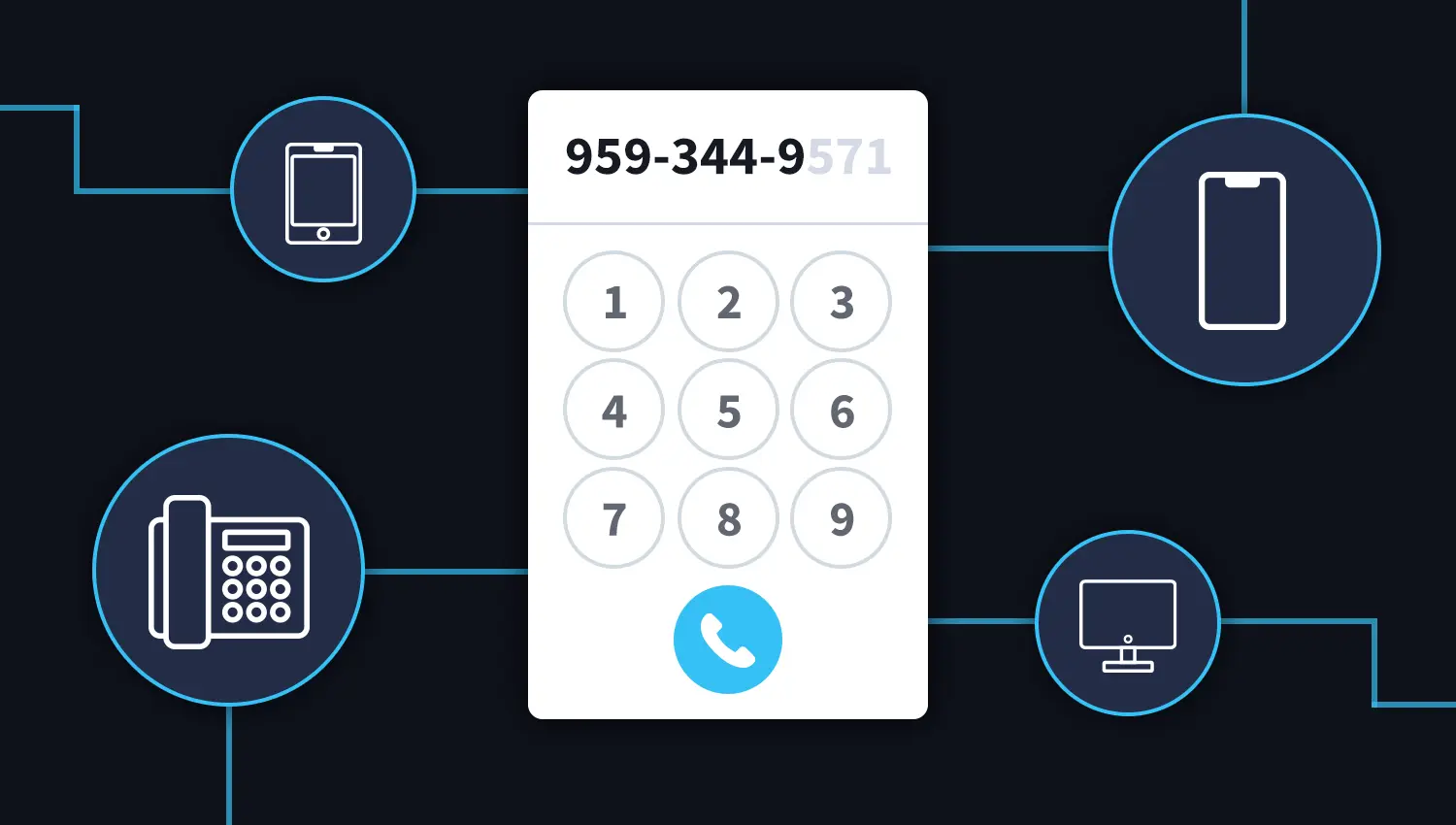Trying to find the right virtual phone system for your small business or startup? You’ve come to the right place.
We’ve compiled a comprehensive list of the top cloud-based business phone system providers on the market. So, suppose you’re looking for a virtual PBX and auto attendant with great pricing, robust features, call quality, and outstanding customer support. We’re confident you’ll find a business phone service provider below to meet your needs.
Without further ado, here’s the ultimate 2024 list of the best virtual phone systems for small businesses:
1. Unitel
Company Description: Unitel is the work-from-anywhere phone system for solo entrepreneurs and startup teams who would rather spend time building their businesses than dealing with overcomplicated tech. Unitel has you covered regarding affordability, features, call quality, ease of use, and customer support.
With Unitel, there’s no hardware to maintain or software to download. You can manage all the features of your online cloud-based business phone system and run your business from your existing phones (home, office, cell, landline, VoIP, or smartphone app).
Unitel simplifies all the features and functionality of other leading auto attendant phone systems. So, whether you’re a first-time entrepreneur, busy small business owner, or bootstrapped startup – Unitel is a professional virtual PBX you can easily set up and afford. No instruction manuals or technical knowledge is needed.
You can even use the Unitel mobile app to add your business phone number as a second line to your existing mobile phone, turning your smartphone into your office phone when you’re on the go.
And unlike many other phone service providers, Unitel’s customer support is not outsourced to an overseas call center. It’s 100% USA-based. It’s always free. And there’s always a real person ready to help.
Pricing: Unitel starts at just $9.99/month, which includes 500 monthly minutes, unlimited greetings, extensions, voicemail, and more.
Every plan is month-to-month. You’re never locked into a long-term contract, and you get a money-back guarantee, so you can try Unitel risk-free for 30 days.
It’s as straightforward as it sounds. If after 30 days you’re not 100% satisfied, your money is refunded, no questions asked.

2. Grasshopper
Company Description: Are you a small company that wants to look like a national company? Grasshopper is a virtual phone system at a reasonable price with a range of business phone system features.
Grasshopper makes it easy for companies to receive calls on mobile devices. Features included in Grasshopper’s plans include extensions, call forwarding, and voicemail-to-text — each without the need for investments in expensive hardware.
Pricing: Grasshopper offers three plans. Their solo plan is $29 per month and offers one phone number with three extensions. The Partner plan is $49 per month and provides three numbers and six extensions. The Small Business plan is $89 and offers five numbers and unlimited extensions.

3. FreedomVoice
Company Description: FreedomVoice is a cloud phone system that provides businesses with a virtual auto attendant and a mobile app for managing business lines.
It’s a professional phone system managed directly through your smartphone, meaning you don’t have to invest in expensive equipment. The company has served large and small businesses throughout its history and has low-cost plans.
Pricing: FreedomVoice’s plans are based on the monthly minutes you’ll need. Their plans start at 400 minutes monthly for $9.95 per month.

4. MyOperator
Company Description: Do you need a business phone system that can do more? MyOperator is a VoIP company that offers business phone plans with a wide. Their Cloud PBX system allows businesses to distribute calls among their team members, ensuring scalability. Their plans also include toll-free numbers, virtual numbers, custom IVR, call recording, and in-depth call analytics so that companies can better analyze their call operations.
MyOperator includes Call Desk features, which allow businesses to attend to all business calls without missing them. MyOperator’s system doesn’t require the installation of expensive hardware. Their software focuses on giving companies a complete business phone solution for individual departments within their company. Their plans scale with the monthly minutes customers require, but all plans offer unlimited extensions.
Pricing: MyOperator has two plans: A Local Number plan for $10 per month, which includes 400 minutes per month, and a Toll Free Number plan for $10 per month, that 200 minutes per month. Each plan also includes unlimited extensions, pro licenses, and several internal departments within which the system can be used.

5. Talkroute
Company Description: Do you wish you could find a business phone solution that allows you to keep your current phone without investing in expensive equipment and hardware? TalkRoute gives you access to local and toll-free numbers, extensions for everyone on your team, call forwarding and routing, voice messaging, and in-depth tracking — all from your mobile device and with no extra equipment purchase required.
TalkRoute offers a live demo of its service on its website, which you can use to see how the service would fit with your current processes. TalkRoute helps companies enjoy all of the benefits of business phone services from the convenience of their mobile devices.
Pricing: TalkRoute’s plans start at $19 per month (limited to one user only) and go up to $59 per month (which includes 10 users). Each step up in plans offers more advanced features suited for businesses of different sizes.

6. Vonage
Company Description: Vonage is a powerhouse in the business phone system industry. The company offers a range of VoIP business phone plans that allow companies to secure their toll free number and use the advanced mobile features that the company offers. Their features include a reliable mobile app desktop app, conference calling, online meetings, video conferencing, file sharing, multi-level auto-attendant, CRM integrations, call recording, group calls, and visual voicemail.
With Vonage, you can download the app and use its service on your mobile device immediately after signing up.
Pricing: Vonage offers three different business phone plans, costing $19.99, $29.99, and $39.99 per month. Each step up provides additional features.
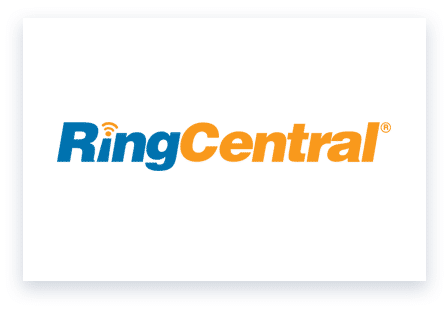
7. RingCentral
Company Description: Do you want to try a business phone service but aren’t ready to commit now? RingCentral provides businesses with an instant 800 number and a free 15-day trial to try the service before committing to a monthly plan.
RingCentral allows customers to take calls from any device, return calls with one click, welcome callers with a custom greeting, track incoming and outgoing calls in their log system, and port existing toll-free numbers into their service. RingCentral is a reasonably priced, feature-rich option for growing businesses.
Pricing: RingCentral offers four plans, each offering more features for larger teams. The following is the starting price for each plan: Essentials ($32.99/user/mo.), Standard ($40.99/user/mo.), Premium ($47.99/user/mo.), and Ultimate ($62.99/user/mo.).
8. CallHippo
Company Description: Do you wish you had a virtual phone system that could learn about your business the more you worked with it? That’s exactly what CallHippo provides. Their intelligent virtual phone system comes complete with workflow automation, allowing you to build out how your customer support teams handle calls from your customers.
CallHippo can help teams improve their customer support, analyze and optimize the productivity of their employees, and train new employees on how to work within the processes built out from within their system. Their in-depth activity feeds give you a complete top-down view of your operations. They currently offer numbers from over 50+ countries worldwide and boast a system setup process that takes less than three minutes.
CallHippo is an excellent solution for teams that want to define their sales and support processes directly through their business phone provider.
Pricing: CallHippo’s the following plans: Bronze ($20/user/mo.), Silver ($20/user/mo.), and Platinum ($40/user/mo.). As plans increase in price, so do the available phone system features.
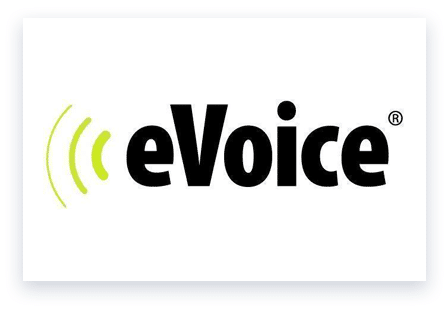
9. eVoice
Company Description: Wouldn’t getting a free toll-free number with your business phone service be nice? That is exactly what eVoice offers. Their plans include a free local or toll-free phone number. Every plan also comes with call forwarding, allowing you to set advanced call routing rules to send inbound phone calls anywhere you need. It’s an excellent feature for sales teams constantly dialing to hit quota.
eVoice plans also feature an auto-attendant that can personalize your phone answering services and forward callers to the right extension within your company.
Pricing: eVoice has decided to keep its pricing super simple — one plan for $14 per user per month.
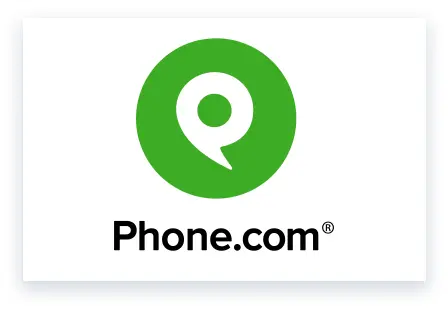
10. Phone.com
Company Description: Phone.com offers a feature-rich solution for small and mid-sized businesses. Their plans include more than 40 standard features, including custom phone numbers, video conferencing, user extensions, auto-receptionist, greetings, and call routing features. Each of their 40+ standard features is included in all of their plans, with their larger plans offering a few features typically geared toward larger enterprise businesses.
If you want an easy-to-use, feature-rich, and affordable business phone solution, phone.com is an excellent choice.
Pricing: Phone.com plans start at just $14.99 per user per month. Their smallest plan comes with 1000 monthly minutes and 50+ standard features. Their largest plan is $29.99 per user per month, including unlimited minutes.

11. Callture
Company Description: Have you ever wished that you could have a little extra context about previous conversations before you pick up a call from a customer or colleague? Wouldn’t it be nice to have some background information before saying “Hello?” That’s exactly what Callture offers with its virtual phone service, which features its patented “memo-on-call” feature. The memo-on-call feature allows you to record a memo after the call. Then, when the person calls back, the memo will be played to you while the caller hears the ringing on the other side.
Callture offers a virtual phone system with unique features that help it stand out. If you constantly need additional context when you hop on a call, Callture can help.
Pricing: Callture offers the following plans: 1 User ($26.50/user/mo.), 2-4 Users ($26.50/user/mo.), 5-20 Users ($26.50/user/mo.), and 21+ Users ($26.50/user/mo.).
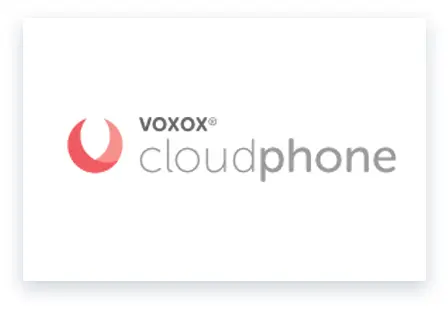
12. CloudPhone
Company Description: CloudPhone takes all the features of an advanced hardware-based system and makes it available to businesses in the cloud. Every plan includes a toll-free business number and works with any mobile or landline phone you own. Their plans include a virtual receptionist who can automatically answer, route, and play messages so you don’t have to stop business whenever a call comes in.
If your company is concerned with efficiency, CloudPhone is a service that prides itself on the features that facilitate efficiency and make it easy for businesses to improve their phone communication without slowing down their business in other areas.
Pricing: CloudPhone’s Solo plan is $24 per month and includes 1 number and two users. Their Partner plan is $64 per month, including 5 numbers and up to 5 users. Their largest small business is $89 per month, which includes 10 numbers and up to 10 users.

13. MightyCall
Company Description: MightyCall is a virtual phone system designed for small businesses. Their system makes setting up and using their virtual phone system simple. First, you pick your business phone number — either toll-free or local. Then, you add your employees, set your call routing rules, and begin accepting customer calls!
MightyCall helps you stay in touch with customers. Their system features in-depth analytics and tracking, so you can monitor your team’s activities through your phone system and pinpoint areas for improvement. MightyCall apps are available on mobile and desktop.
Pricing: MightyCall plans are as follows: Small Team ($15/user/mo.) includes 500 monthly minutes. Business ($20/user/mo.) includes unlimited minutes, and Enterprise ($150/mo.) includes unlimited minutes and users for that flat rate.
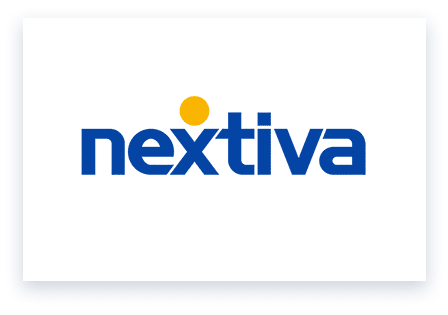
14. Nextiva
Company Description: Nextiva is a large virtual phone service provider and a well-known brand within the industry. They allow companies to register toll-free 1-800 numbers or local numbers anywhere in the U.S. The setup for their service is instantaneous—once you pay, you can begin using Nextiva immediately. Their features include using their mobile service and managing your calls online anywhere.
Nextiva also includes an auto-attendant that plays a customized greeting for callers and provides a menu that connects them with specific people or departments within your company.
Pricing: Nextiva offers the following plans: Essentials ($30.95/user/mo.), Professional ($35.95/user/mo.), and Enterprise ($45.95/user/mo). The Essentials plan does not include the ability to set up an auto attendant, so if you are looking for a virtual phone system to take calls and direct them to various employee and department extensions, you need to bump up the plans.
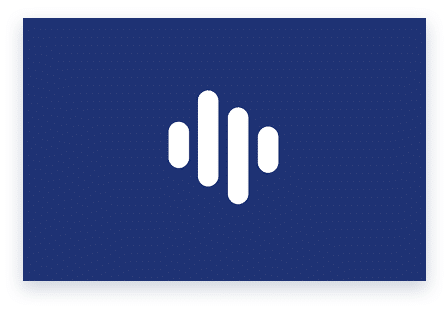
15. Dialpad
Company Description: Do you wish you had a simple business phone solution with an intuitive interface that helped you track all your interactions with your client? Dialpad offers exactly that. Their platform allows teams to power their business voice service, video, messages, and meetings across all existing devices.
The nicest thing about Dialpad is it works on all of your existing devices, making it easy for companies to integrate the solution.
Pricing: Dialpad offers three plans: Standard ($23/user/mo.), Pro ($35/user/mo.), and Enterprise (must get a quote). The difference is that the larger the plan, the more features, functionality, and integrations you get.







